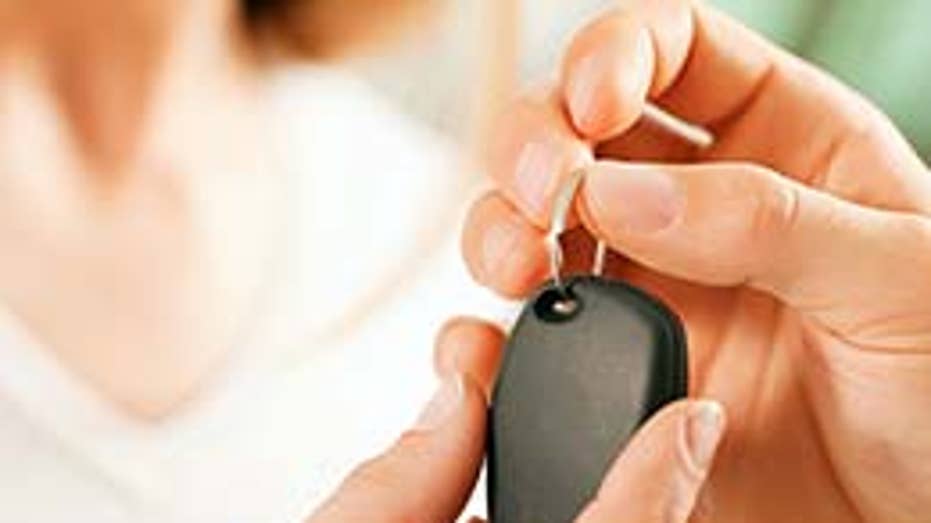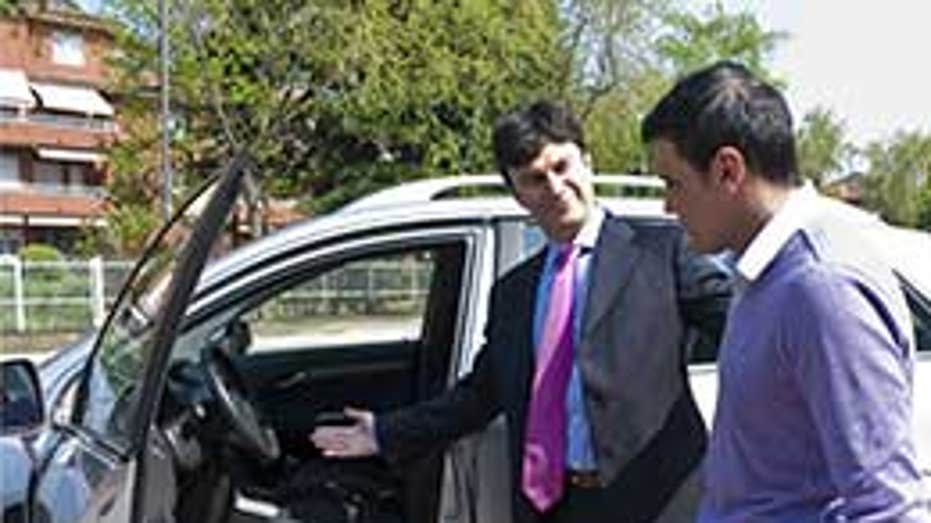Four Tips to Sell a Used Car Saddled With a Lien
1. Got a car lien? Sell it anyway

Just because you owe money on your car doesn't mean you can't sell it. The sales process may be more complicated, but it's not uncommon to sell a vehicle with a car lien on it.
The reasons a used car may have a lien vary. It may be that you owe money for unpaid repairs or you used your vehicle as collateral. More likely there's a lien because the vehicle was financed and hasn't been paid off yet. In any of those cases, the lender or lien holder owns the car and thus the title. Without the title, the buyer can't take legal ownership of the vehicle, making the sale process a little more complicated but not unattainable.
"Most vehicles that are sold do have an existing lien on them," says Lana Johnson, senior vice president of originations for Santander Consumer USA, an auto financing firm in Fort Worth, Texas. "It's usually primarily because the car was financed."
If that's your predicament, here are some tips to sell a car with a lien.
2. Dealerships make selling easy

When looking to sell a vehicle with a car lien due to financing, there are two options. You can sell to a dealer or sell it in the private market. Depending on which way you go, the process will differ.
"Going to the dealership is the easiest route to sell," says Ron Montoya, consumer advice analyst at Edmunds.com, a vehicle information website. Dealers take care of the paperwork for you. If you do decide to work with a dealer, make sure you are getting a fair price. Know the value of your car before you start negotiating.
Robert Sinclair Jr., spokesman for AAA New York, says anyone looking to sell a used car in "decent condition" should expect to get a good price. "With the bad economy, people are holding on to their cars much longer, resulting in fewer used cars," he says. Sinclair says to never accept below book value for your vehicle. Book value is a car's market value as determined by Kelley Blue Book.
Whether you sell to a dealer or an individual, the sale of a car with a lien gets tricky if the loan is upside down, meaning you owe more than the car is worth. In that case, Montoya says you're apt to have more difficulty selling the car unless you are willing to pay the difference.
3. Do your research before selling

Before attempting to sell your used car to a dealer, Johnson says to call your lender to find out how much you owe. Once at the dealership, the dealer will evaluate your car and tell you what it's willing to pay.
"If you agree to sell the car, the dealer makes it really easy," says Johnson. "The dealer handles the entire transaction from there." That means you give the dealer power of attorney and it will contact your lender on your behalf and make arrangements to pay it directly, and give you any money over the loan's balance. Once the loan is paid off, the lender will then release the car's title to the dealership.
When selling to a dealer, Montoya at Edmunds.com says to make sure you are in contact with your car's lien holder the entire time, and that you get details in writing from the dealer, laying out all the terms of the deal.
"Make sure they give you some sort of certificate that the balance is paid off before you hand over the keys," Montoya says.
4. Make more money by selling privately

Selling to an individual may be a bit more complicated, but it may yield you a higher sale price. "Often, you can get more money from a person, but there's a lot more time and effort," Johnson says.
When listing your car for sale, you may want to note that there's a lien on it upfront to prevent any confusion. If your car lien holder is local, the seller and buyer can go to the lender's office directly to pay off the loan and give the buyer ownership of the title, says Jeffrey Foster, an attorney at Foster Law Offices in Seattle.
Another option is to have the buyer pay the lender for the seller and then pay the seller any money above the payoff amount, similar to how the dealer does it. Depending on the state, the lien holder hands the title over to the buyer, or the buyer would have to wait for the title to be released to the seller and then sign it over to the buyer, requiring a leap of faith on the buyer's part.
5. Escrow accounts provide security

One way to protect all the parties involved in a private transaction is to use an escrow service that will secure the buyer's funds until he or she takes possession of the car and title. "The standard escrow secures buyer's funds so the seller knows the funds are real money and the buyer takes possession and makes sure it's what it's supposed to be," says Andee Hill, director of business development at Escrow.com based in Rancho Santa Margarita, Calif.
In addition to an escrow service, consumers can purchase payoff services that will do all the work for them by gathering the lien holder information, confirming the payoff amount, reconfirming the amount at closing and making sure there are enough funds in the escrow account. Other available services include a title transfer service to ensure the lien holder transfers the title to the buyer.
The fees for escrow services vary based on the amount being financed. "We see a lot of splitting of the escrow fee between the seller and the buyer," Hill says. "It benefits both parties. It's not only the buyer making sure he gets the vehicle and title, but the seller has a lot of risk because there's payment fraud."




















